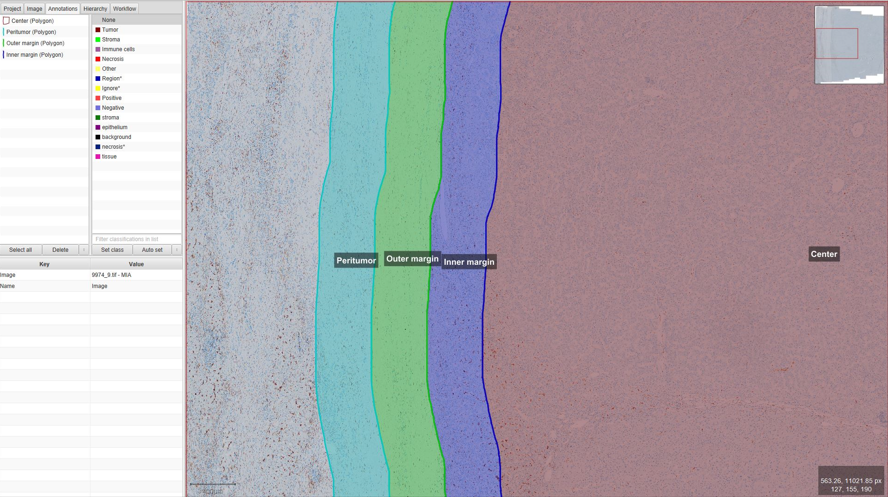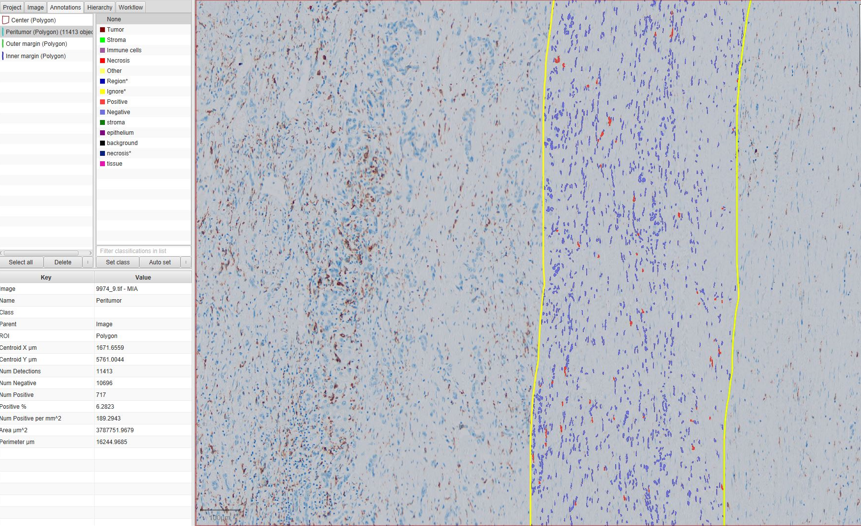The Translational Cancer Genomics team is finalising their hepatocellular carcinoma research and is proud to present preliminary results of their efforts.
Liver cancer, which in 75-90% of cases is represented by hepatocellular carcinoma (HCC), ranks as the third leading cause of cancer death worldwide. Innate immune cells in tumor microenvironment could orchestrate cancer-related inflammation and regulate tumor initiation, progression, as well as they could improve the prediction of clinical outcomes and response to therapy in different cancers. Amongst innate immune cells, we have focused our attention on tumor-associated macrophages and mast cells.
Tumor-associated macrophages are highly plastic cells which in HCC encompass resident Kupffer cells and monocyte-derived macrophages. All of these may have different functional states: from antitumor M1 (CD68+CD163-) to protumor M2 (CD68+CD163+) macrophages, which may explain the discrepancies of reported effects of tumor-associated macrophages in HCC. In addition, intratumor or peritumor localization of macrophages seems to have impact on their properties.
Local mast cells can support as well as suppress tumor development and progression. They not only participate in angiogenesis and facilitate metastasis but can also eliminate tumor cells and recruit other immune cells for antitumor responses.
We are now using whole-slide scans of resected HCC slides after immunohistochemical staining for CD68+ and CD163+ macrophages and CD117+ mast cells. An open-source software for image analysis QuPath is being used to annotate tumor center, inner and outer invasive margin and peritumor liver (Fig.1) and then quantify density of immunopositive cells in each region (Fig.2). Obtained quantitative data will be further tested for associations with clinical and pathology variables and with outcomes.
We hope to publish our results in near future!

Fig. 1

Fig. 2
